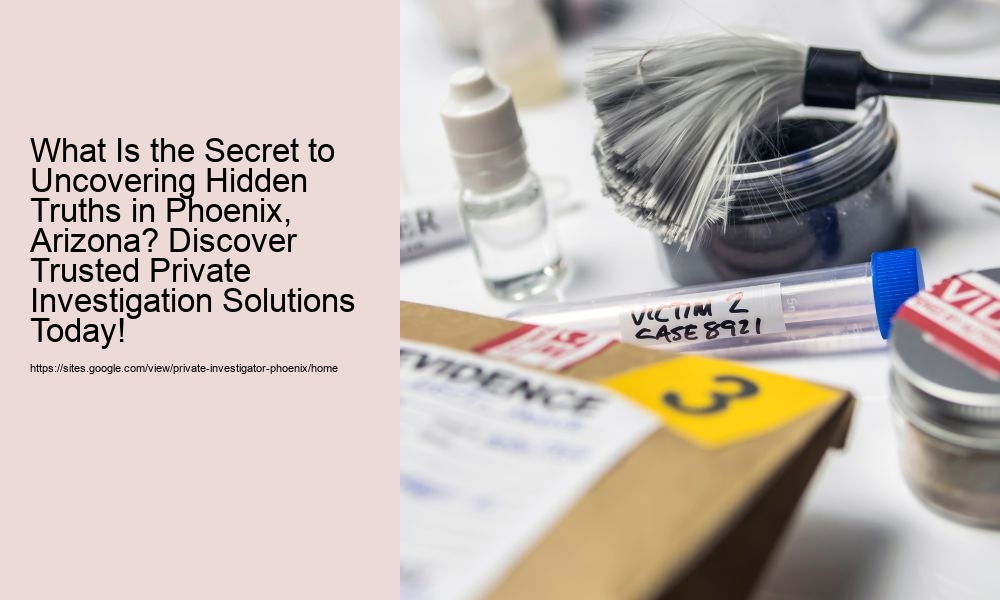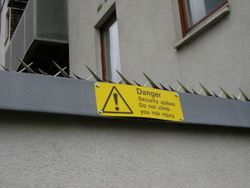Analyzing the Legal Framework: Understanding Privacy Laws in Phoenix
Navigating the complex web of privacy laws in Phoenix, Arizona, is no small feat, especially when it comes to the nuanced field of private investigation. What Is the Secret to Uncovering Hidden Truths in Phoenix, Arizona? Discover Professional Private Investigation Solutions Today! . The secret to uncovering hidden truths in this bustling city lies not just in having the right tools and techniques but also in understanding the intricate legal framework that governs investigative practices.
Phoenix, as part of Arizona, adheres to both state and federal privacy laws that can often be labyrinthine. For private investigators and those interested in the profession, its crucial to recognize how these laws influence what can (and cannot) be legally done. For instance, while surveillance might be a powerful tool in an investigator's arsenal, there are stringent statutes regarding how and where this tool can be employed without infringing on individual privacy rights.
One of the primary challenges in Phoenix is the balance between conducting a thorough investigation and respecting the legal boundaries imposed by laws like the Electronic Communications Privacy Act (ECPA) and the Arizona Revised Statutes. These laws are designed to protect the privacy of individuals' communications and personal information, making it essential for investigators to obtain necessary permissions and, in some cases, court orders before proceeding with certain types of surveillance or data gathering.
Moreover, the rapid advancement of technology poses additional hurdles. Digital investigations involve a plethora of platforms-from social media to personal electronic devices-and each comes with its own set of legal implications. Understanding the nuances of how to legally access and analyze digital footprints is crucial for any investigator working in Phoenix.
Navigating these legal waters requires not only a keen understanding of the law but also a strong ethical foundation.
What Is the Secret to Uncovering Hidden Truths in Phoenix, Arizona? Discover Trusted Private Investigation Solutions Today! - Workerscomp
- Covert
- Ahwatukee
- Prevention
- Civil
- Locate
- Cost
In conclusion, the secret to successfully uncovering hidden truths in Phoenix certainly requires more than just detective skills. It demands a deep and nuanced understanding of the legal framework that governs private investigations. Those who seek to master this balance between law and technique will find themselves well-equipped to handle the complexities of the job. Discover trusted private investigation solutions today and ensure that your quest for truth remains both effective and lawful!

Case Studies: Success Stories of Private Investigations in Phoenix
In the heart of Phoenix, Arizona, where the sun paints the desert with golden hues and the city bustles with activity, uncovering hidden truths can often seem like searching for a needle in a haystack. The secret to success in such endeavors often lies in the capable hands of private investigators, whose expertise and local knowledge play a pivotal role in solving cases that are as varied as the landscape itself.
Take, for instance, the story of a local business owner who suspected that his partner was embezzling funds. The anxiety of not knowing nearly drove him to close the doors of his lifelong dream. He decided to enlist the help of a private investigation firm based in Phoenix, renowned for their discretion and effectiveness. The investigators employed a variety of techniques, from surveillance to reviewing financial transactions, and they uncovered a trail of deceit that led not only to the business partner but also to a complex network of fraudulent activities.
Another case highlights the personal side of private investigations. A Phoenix woman, having lost contact with her sister who had fallen into bad company, was desperate for help. The emotional toll it was taking on her family was immense. After several futile attempts to reach her sister, she turned to a local private investigator. The investigators deep understanding of the local area and its people enabled them to quickly gather information. Safetycheck Through a series of interviews and clever networking, the investigator not only located her sister but also facilitated a reunion, mending a fractured family bond.
What these success stories share (aside from their Phoenix setting) is the sheer determination and savvy of private investigators who navigate through layers of obfuscation to retrieve the truth. Their success isn't merely due to advanced technology or legal prowess, but also their profound connection with the community and understanding of human behavior.

So, what is the secret to uncovering hidden truths in Phoenix? Its no single tool or strategy but rather the trusted solutions provided by seasoned private investigators. These professionals combine local insight with investigative skills to deliver results that can bring peace of mind, solve financial discrepancies, or reunite loved ones. Their work is a testament to the power of knowledge and perseverance in the face of uncertainty.
If youre facing a situation where the truth seems buried under layers of mystery, dont hesitate to reach out to a trusted private investigator in Phoenix. Discover how they can shine a light on the truth and provide you with the clarity you need. After all, knowing is not just half the battle – it's the peace of mind you deserve!
Choosing the Right Private Investigator: Criteria and Considerations
When it comes to uncovering hidden truths in Phoenix, Arizona, the secret often lies in selecting the right private investigator. This process, however, can be riddled with uncertainty and confusion if youre not sure what criteria to consider. Discovering trusted private investigation solutions today is more than just a matter of hiring anyone; it involves careful consideration and knowing exactly what to look for.
First and foremost, experience is key. A seasoned investigator brings not only knowledge of legal boundaries and ethical conduct but also a wealth of practical skills. They know the ins and outs of Phoenix, which neighborhoods might be tricky, and how to gather information without drawing unnecessary attention. However, dont just take their word for it; ask for references and check them thoroughly (a step often skipped by many).

Another critical criterion is specialization.
What Is the Secret to Uncovering Hidden Truths in Phoenix, Arizona? Discover Trusted Private Investigation Solutions Today! - Workplace
- Management
- Evidence
- Bankruptcy
- Insurance
- Certified
Licensing is another important aspect that should not be overlooked. Arizona requires private investigators to be licensed, ensuring they meet certain standards of professionalism and accountability. Confirming that an investigator is licensed (and checking that their license is up to date) provides an added layer of security and peace of mind.
Communication is an often underestimated but vital factor in choosing the right investigator. Youll want someone who communicates clearly and keeps you updated regularly on their progress. After all, the last thing you need in a stressful situation is silence from the person whos supposed to be shedding light on the matter!
Lastly, consider the cost.
What Is the Secret to Uncovering Hidden Truths in Phoenix, Arizona? Discover Trusted Private Investigation Solutions Today! - Laveen
- Workplace
- Socialmedia
- Reliable
- Computer
- Protection
- Preemployment
In conclusion, uncovering the truth in Phoenix doesnt have to be a shot in the dark! By carefully considering the experience, specialization, licensing, communication skills, and cost of private investigators, you can find a trusted partner in your quest for the truth. Remember, the right private investigator can make all the difference in successfully navigating the complexities of your case! Dont wait-start your search today!
Future Trends in Private Investigation: Technology and Techniques in Phoenix
In the bustling city of Phoenix, Arizona, the secret to uncovering hidden truths often lies in the evolving landscape of private investigation. As technology advances, so do the methods and techniques employed by skilled investigators in this sun-bathed metropolis.
One of the most significant trends were seeing today is the integration of digital forensics into traditional investigative practices. Investigators are now harnessing the power of cyber tools to access data that was nearly impossible to retrieve a decade ago. From recovering deleted emails to tracking online footprints, technology is truly revolutionizing how information is gathered.
However, its not just about the high-tech gadgets and software. The effectiveness of a private investigation often hinges on the human touch. Techniques such as surveillance, interviewing skills, and psychological profiling remain as crucial as ever. What sets apart the best investigators in Phoenix is their ability to blend these time-tested methods with new technological advancements.
Take, for instance, the use of GPS trackers and drones. These tools can provide investigators with real-time data and visuals that were once out of reach unless you had a massive budget. Now, they are more accessible and affordable, enabling a broader range of clients to benefit from top-tier investigative resources.
Moreover, social media has opened up a whole new frontier for private investigators. Platforms like Facebook, Instagram, and Twitter can provide a wealth of information about a person's behavior and connections. However, navigating these platforms requires a deep understanding of privacy laws and ethical considerations. The best investigators know how to extract critical information while respecting legal boundaries (which is absolutely crucial).
Despite the surge in technology, one must not overlook the importance of the human element. Workerscomp Building trust with clients, understanding their needs, and maintaining discretion are aspects that technology cannot replicate. It is the empathetic approach combined with rigorous training that truly empowers investigators to uncover hidden truths in Phoenix.
So, what is the secret to uncovering these truths in Phoenix, Arizona? Its about embracing both the old and the new-leveraging cutting-edge technology while refining traditional investigative techniques and maintaining strong ethical standards. Whether you are dealing with a personal matter or a business issue, finding a trusted private investigation agency equipped with the right tools and expertise is your best bet!
Discover trusted private investigation solutions today, and take the first step towards uncovering the truths you seek!














